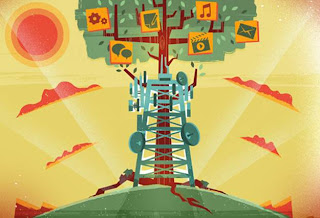FOMO, tracking and habits
I love my weekly email update from Nir Eyal and his post on Nir and Far - he writes on behaviour, habits and How to Build Habit-Forming Products. He always brings up some interesting fact. This week Nir was writing about the screen time problem, this is coupled with what Fred Wilson has been writing about on screen time trackers made me think about my own FOMO with tracking. I used to have a fitbit, my phone and lots of devices to track me as I started on the ideas of quantified self way back in 2008 - which feed into My Digital Footprint. I left "on" a wide range of trackers for location, heart, paces etc and tried to build a model. Well I kind of got board and slowly the devices broke for a stack of reasons. Rock Climbing and diving among the most obvious ones that some devices stopped functioning as well as they should. Many have been upgraded and also gone to my overflowing man draw of one-day recycling...
